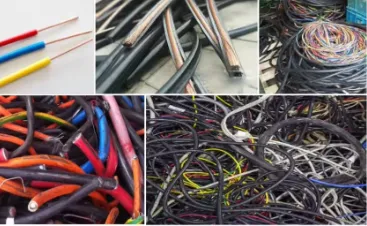

Jul . 29, 2024 22:31 Back to list
The Importance of Scrap Processing Plants in Modern Recycling
In the contemporary landscape of environmental conservation and resource management, scrap processing plants play a pivotal role in the sustainable recycling industry. These facilities are designed to efficiently process, recycle, and reclaim valuable materials from scrap, contributing to a circular economy and minimizing environmental impact. As global demand for raw materials continues to rise, the significance of scrap processing plants becomes increasingly apparent.
At its core, a scrap processing plant specializes in the collection and processing of various types of scrap materials, including metals, plastics, electronics, and paper. The primary objective is to recover materials that can be reused in manufacturing processes, thereby reducing the need for virgin resources. This not only conserves natural resources but also decreases the energy consumption and greenhouse gas emissions associated with mining and manufacturing new materials.
The operational process within a scrap processing plant typically begins with the collection of scrap from businesses, households, and industrial sites. Once the materials are gathered, they undergo several stages of processing. The first step involves sorting, where materials are separated based on their type, grade, and potential for recycling. This initial sorting is crucial, as it determines the efficiency and profitability of the recycling operation. Advanced technologies, such as magnetic separators, shredders, and optical sorting systems, are often employed to enhance accuracy and speed in this phase.
After sorting, the next stage is the processing of materials, which can involve shredding, crushing, or baling, depending on the type of scrap. For instance, metal scrap is often shredded to create smaller particles that can be easily melted down and reformulated into new products. In contrast, plastic scrap may be melted and extruded into pellets for reuse in manufacturing. Each process is carefully designed to maximize the recovery of materials while minimizing waste.

An essential aspect of scrap processing plants is their environmental responsibility. Many plants are equipped with advanced filtration systems and waste management strategies to ensure that their operations do not contribute to pollution. For example, the recovery of metals from electronic waste must be performed with care to prevent hazardous substances, such as lead and mercury, from contaminating the environment. By adhering to strict regulations and industry standards, scrap processing plants can operate sustainably while ensuring the safety of their workers and local communities.
Moreover, the economic benefits of scrap processing plants are noteworthy. Recycling operations create jobs and foster local economies, from the collection and transportation of scrap to the processing and sales of recycled materials. As industries increasingly seek sustainable solutions, the demand for recycled materials is on the rise, presenting new opportunities for growth within the recycling sector.
In light of the growing concerns regarding climate change and resource depletion, the role of scrap processing plants is crucial. They are not only instrumental in reducing landfill waste but also in fostering innovation within the recycling industry. As technology advances, these plants are continuously evolving, incorporating new methods and systems that enhance material recovery and processing efficiency.
In conclusion, scrap processing plants are essential components of the modern recycling ecosystem. They serve as the backbone of resource recovery, contributing to a cleaner environment and a more sustainable economy. As we move toward a future that prioritizes environmental stewardship and resource efficiency, the importance of these facilities will only continue to grow, ensuring that valuable materials are preserved for generations to come.
Latest news
The Future of Metal Recycling: Revolutionizing Waste Management
NewsMay.14,2025
Optimizing Waste with Recycling Lines
NewsMay.14,2025
Municipal Solid Waste Sorting Line: Revolutionizing Waste Management
NewsMay.14,2025
Metal Shredders: Essential Tools for Efficient Recycling
NewsMay.14,2025
Maximize Your Profits with a Copper Wire Granulator
NewsMay.14,2025
Home Metal Shredder: A Smart Choice for Your Home Recycling Needs
NewsMay.14,2025